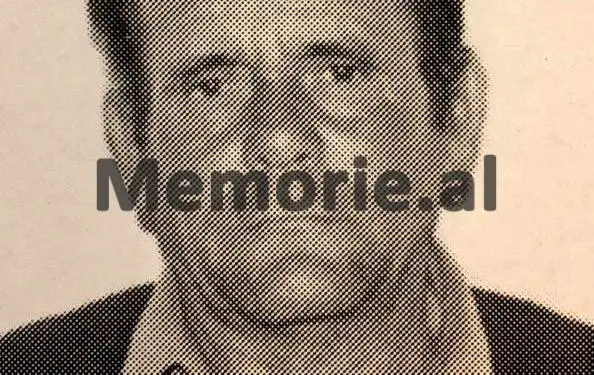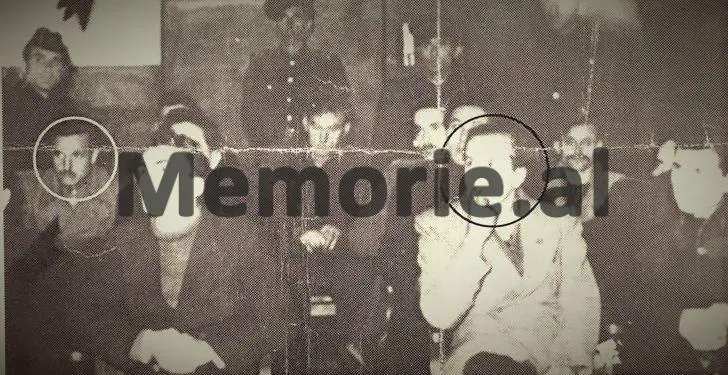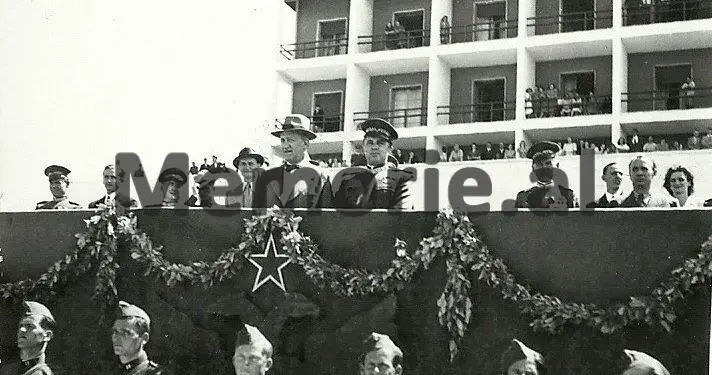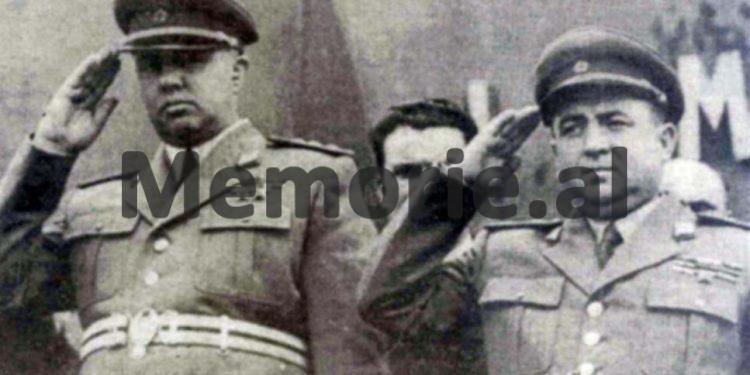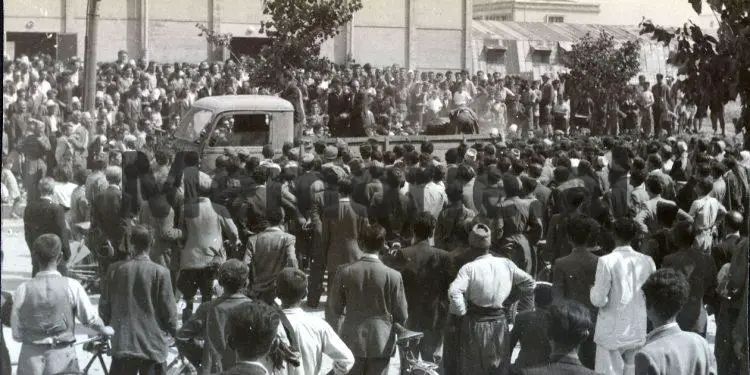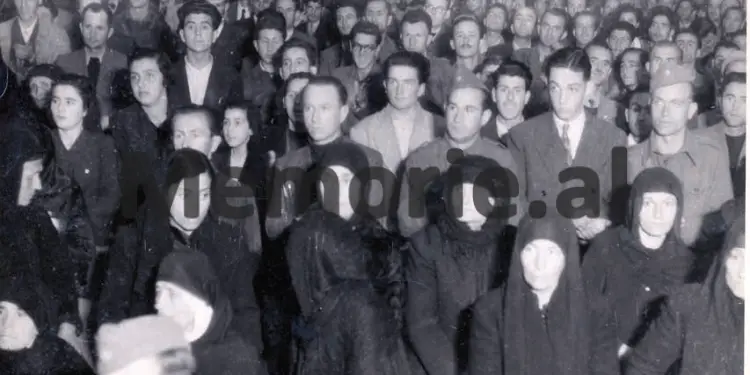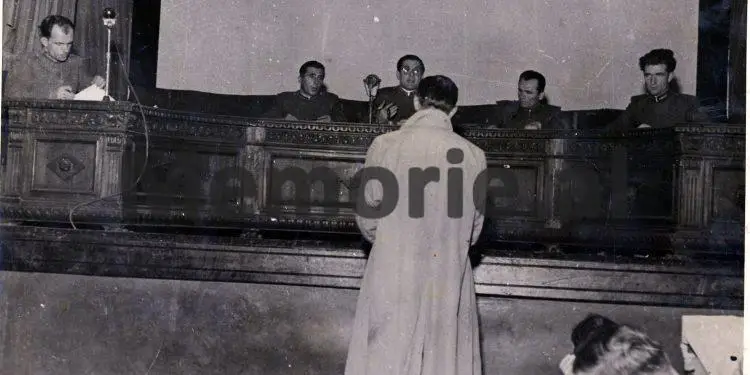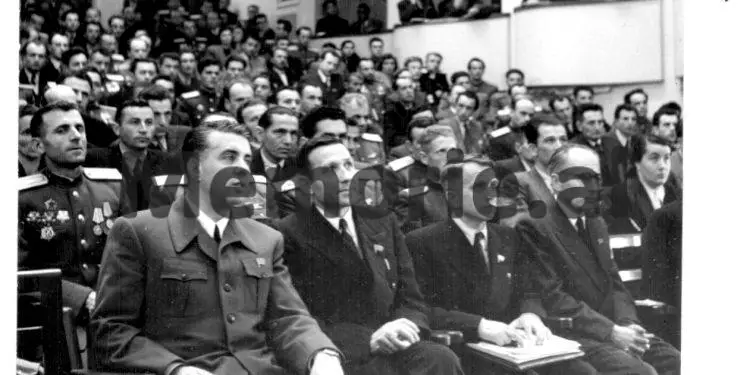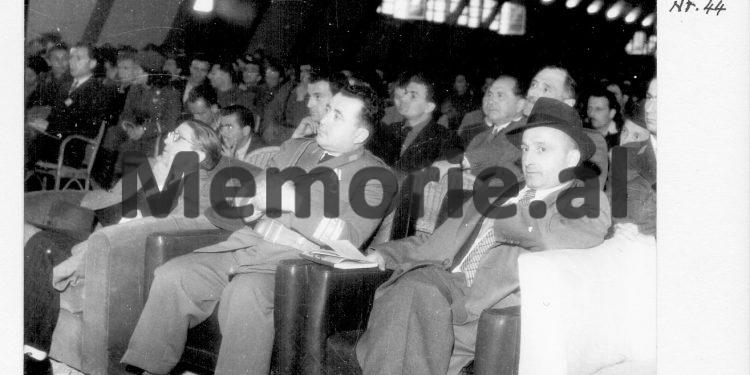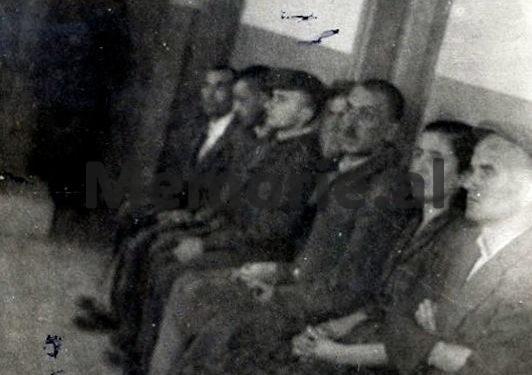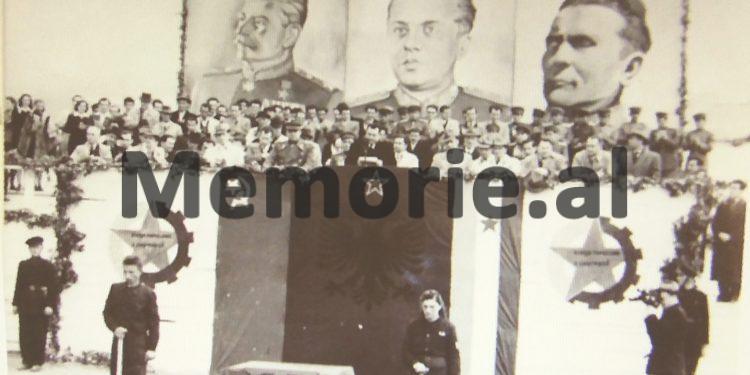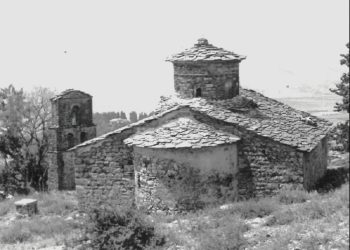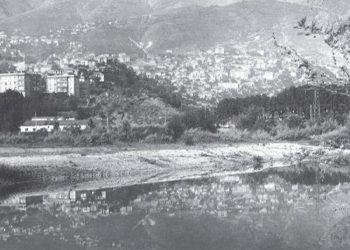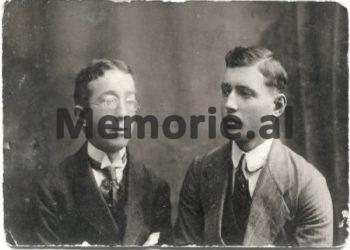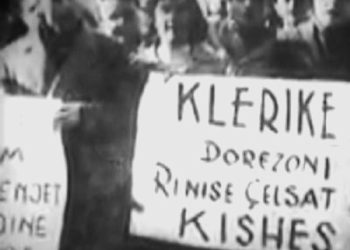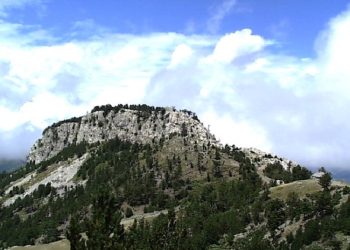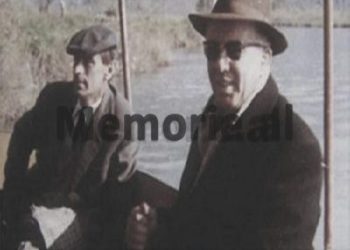Dashnor Kaloçi
Memorie.al publishes the unknown story of the Bosnian emigrant, Hysen Sejdini, who together with his family in 1941, had left Mostar due to armed conflicts between Serbian Chetniks and Croatian Ustashas and had come to Albania initially staying. in the city of Durrës at the Hotel “Molla” and then in Tirana in a house at “Selvija” owned by Mahmut Daja.
The engagement of Hysen and his brother, Haki, with the guerrilla units of Tirana under the leadership of Lym Keta that the two brothers had a close friend and then as partisans in the Dajti Çeta commanded by Hamit Keçi, where they remained until the end of Fighting to be later assigned to work as a mechanic at the Central Plant (“Enver” Plant), where like all other former partisans, had the right to bear arms.
Hysen Sejdini annoyed after the order given by Enver Hoxha for the removal of all Yugoslav citizens from Albania after the breakdown of relations with Belgrade (for fear that UDB agents would remain here) and the meeting with Enver in his office after mediation of Lym Keta and Myslym Peza, where during the debate, in a fit of rage, Hyseni instinctively put his hand on the pistol he had in his belt!
The immediate intervention of Koci Xoxe and other companions who were in the anteroom, who put bars on Hyseni and sent him to Tirana Prison, where after a short time he was taken to court together with his brother, Haki and some others that they did not did they know them at all, where they were sentenced to death, accusing them as “a hostile group of UDB agents who wanted to assassinate the Commander” ?!
After the break with Tito’s Yugoslavia, Enver Hoxha ordered all Yugoslav citizens in Albania to leave and repatriate them to their country, because according to him many UDB agents could remain here. Hyseni, very indignant at this order that also affected our family, because as Bosnian emigrants we still had Yugoslav citizenship, through his two close friends, Myslym Peza and Myslym Keta, requested a meeting with Enver Hoxha, who received him in the office. his where today is the Academy of Sciences. “During the heated debate in Enver’s office, Hyseni angrily put his hand on the pistol he was carrying in his belt.” In 1941, his brother’s meeting with Enver Hoxha, where his anger would cost him dearly, as Enver would not forgive him for that gesture, sending him to the firing squad, after living a life full of suffering and adversity in internment camps, because of the brother who was executed after meeting with Enver Hoxha, Elmaz Sejdini after the ’90s was able to return to Tirana and spend the remaining years in a small alcove of the Institute for Former Integration To the Persecuted and Political Prisoners of Albania, where he was sheltered thanks to the kindness of Kurt Kola who headed that institution.During a conversation with him in those years when he served at that institution, he told us the whole story of his family, and the two brothers the eldest widows, Hysen and Haki, who were shot in 1951, accused of being “the leaders of a Yugoslav UDB intelligence group who wanted to assassinate Enver Hoxha”?!. What is the history of the Sejdini family, why did they come to Albania and why the two brothers, Hyseni and Haki, were accused of being UDB agents who wanted to assassinate the Albanian Prime Minister, Colonel-General Enver Hoxha?!
Departure from Mostar
Regarding the story of leaving their hometown, Mostar for Albania, Elmazi, the last surviving of the four sons of the Sejdini family, who since returning from exile in 1991, lived with seven members of his family for many years in a single room in one of the offices of the Association of the Politically Persecuted, he recounted: “My father, Qamil, initially worked as a pastry chef in a bar in Mostar, where our family lived. he was forced to work for many years in the mines on the outskirts of Mostar, and this continued until April 1941, when our family, like thousands of other Bosnian Muslim families, was forced to move from their lands, as as a result of the beginning of the civil war between the Serb Chetniks and the Croatian Ustashas, from which the burden and misfortunes fell on us Bosnians. helping them to emigrate to Czechoslovakia, Bulgaria and Albania. In this context, our family, which consisted of two parents and six children, on April 8, 1941 was found aboard a large Italian military steamer, which we waited for a long time in the city port, as it was barely anchored by mines. numerous that the Germans had put at sea. As the Italian steamer was approaching near the Albanian waters, due to the large cargo it had on board where there were thousands of Bosnian emigrants, it was decided that some families would land at the port of Durrës. Father Qamili requested that our family also go down to Durrës, as he had heard that for many years dozens of Bosnian Muslim families who had emigrated there, had stabilized best by integrating into Albanian life. Ten Bosnian families landed in the port of Durrës and the steamer with the other emigrants continued on its way to I do not know where. We, the Bosnian families under the care of the Municipality of the city, were dispersed in different hotels of Durrës and our family had to stay for ten days in the hotel “Molla”. “All the expenses for sleeping, eating and traveling were paid by the Albanian government of that time”, Elmaz Sejdini recalled the vicissitudes of his family leaving, where those forced by the civil war between the Serbian Chetniks and the Croatian Ustashas, were forced to leave the lands of and as immigrants to settle in Albania.
Stabilization of the Sejdini family in Tirana
But how were the Bosnian families received in the Albanian capital, what help did they get from the government of that time and what was the fate of the Sejdini family in the following years? Regarding this, Elmazi recalled: “After ten days in the city of Durrës, our ten Bosnian families brought them to Tirana, scattering us in different houses. Our family moved to the house of an old tyrant named Mehmet Daja After settling there, under the auspices of the Albanian government, which had taken over the stabilization of the Bosnian emigrants, my father started working as a miner in the Krraba coal mines, which were then owned by Kol Kuqali. At that time, our family was completely connected with the Anti-Fascist Movement, and the older brother, Hyseni, after being an illegal guerrilla with Myslym Keta, became a partisan in Dajti’s gang commanded by Hamit Keçi, taking part in all the fighting that took place. end of the War, seeing the attitude of our family, based on Yugoslav citizenship, the Albanian government treated us as equals with its citizens, and probably much better than them. The father continued to work as a miner in the Krraba mines, while the brother, Hyseni, although he had been a guerrilla and a well-known partisan, was assigned to work as a mechanic in the Central Plant (“Enver” Plant) and had the right to bear arms, as many other former partisans at the time. “Also, I continued school, as I had left it halfway in Mostar and we as a family almost did not speak Albanian at all”, Elmazi recalled the arrival of his family in Tirana and the care of the Albanian government during the war period for its stabilization, and also that of Enver Hoxha’s communist who treated them favorably as Yugoslav citizens they were.
Incident with Enver Hoxha
On the part of the Albanian communist government, the priority treatment of the Bosnian emigrant family Sejdini continued until 1948, when Enver Hoxha announced the break-up of Tito’s Yugoslavia. After that for the Sejdini family began many vicissitudes, with arrests, imprisonments, shootings and internments, which would continue throughout the period of the communist regime. After the break with the Yugoslavs, the Albanian Prime Minister, Colonel-General Enver Hoxha, ordered that all Yugoslav citizens who were in Albania be repatriated to their country. Regarding this, in a meeting of the Politburo he said: “We must implement this precisely, because we will remain in Albania many of them who may be agents of UDB.” What happened to the Sejdini Bosnian family, who had Yugoslav citizenship? In this regard, Elmaz Sejdini recalled: “Enver Hoxha’s order for the repatriation of all Yugoslav citizens in Albania, greatly angered my brother Hyseni and especially the statement that; many of us could be UDB agents! Hyseni, as A former partisan and well-known guerrilla, he asked two of his close friends, Myslym Keta and Myslym Peza, to arrange a meeting with Enver Hoxha.Enver received Hysen in a meeting at his office, where today is the Academy of Hyseni had a heated debate with Enver Hoxha and, among other things, told him: ‘I came out as a partisan and I fought for Albania and for you, and not for Tito. How are you going to send us to Yugoslavia?! How can you? you say that word that you will expel the Bosniaks from Albania, because they are agents of UDB “?! After these words that Hyseni said in a high tone and very irritated, in the heat of the moment he instinctively put his hand on the pistol he was carrying on his belt. “Immediately after that, Koci Xoxe intervened with two Security officers who were in the Prime Minister’s hall and handcuffed Hyseni, arresting him inside Enver’s office”, Elmazi recalled the incident of his brother Hyseni in Enver Hoxha’s office, which which would cost the life of him and the other brother Haki.
The vicissitudes of the Bosnian family in the mines of Krraba, Kam, Kurbnesh, etc.
After being sentenced to death, Hyseni and Haki appealed for pardon to the People’s Assembly, which did not approve them, leaving in force the decision to shoot them. Regarding this, Elmazi recalled: “From the day the death sentence was handed down, Hyseni and Haki were left for three years in the Tirana prison, awaiting execution, where we went and met them according to the possibilities that were created for us. Given The relations between Albania and Yugoslavia were very strained, the Albanian government found it difficult to shoot them, as we were still holding Yugoslav citizenship and this would bring new confusion between the two countries, and the abolition of Yugoslav citizenship could not be done without As a result, on April 23, 1951, our family was granted Albanian citizenship without asking us at all, and four days later, Hyseni and Haki were shot in the River Bank, and ten days later we were shown it. only the place of execution, as their bodies were not allowed to be taken in. After the shooting of the two brothers, our family was interned in Memaliaj, where we worked in the mine until 1954 when we were removed from there and they sent us to the Kam mine in Tropoja, where we stayed until 1958. After that, they sent us to the Kurbnesh mine where we stayed until 1964, when they removed us from there and sent us to Krrabë. We worked in the Krraba mines until 1991, when the political changes in Albania began “, Elmazi recalled the vicissitudes of his family in the various mines of the country, where both his parents (Qamili and Aisha), whose lives are still unknown, died. grave, as as exiles they were, they were buried by the state.
Meeting with President Izetbegovic in ’92
With the start of the democratic process in 1992, after receiving a letter from Muharrem Zejnullahu (Bosnian consul in Tirana) Elmaz Sejdini went to Bosnia and, with the help of his relatives, met with President Alia Izetbegovic, to whom he sought Bosnian citizenship, and repatriation of his family to Mostar. “President Izetbegovic told me to do the paperwork,” recalled Elmazi, who from that day (when we interviewed him) was always waiting for that request, postponing the days in a very miserable state together with the seven members. other members of the family, there in an office on the second floor of the Association of the Politically Persecuted, not forgetting for a moment to thank Osman Kazazi and Kurt Kola, who did not harass him to get him out of there on the main road!
(Which, Elmaz Sejdini never achieved, as he passed away some time later, plunging his family further into misery…!) / Memorie.al




